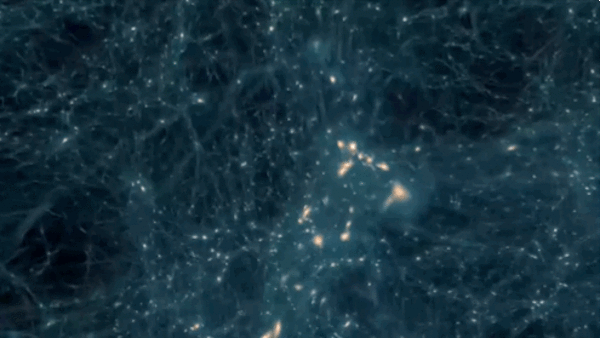10 Controversial Theories About The Universe's Toughest Questions
4. Dark Energy: Science Speak For "We Really Don't Know"

Dark Energy is no easier to describe or explain than Dark Matter but it is supposed to make up 68% of the known universe. Dark Energy is the expanding "force" pushing the galaxies apart while gravity tries to pull them together. This cosmic tug of war has a tipping point and it would appear we have passed it.
According to all the data we have, the universe will continue to expand until all the galaxies are so far away from each other that they will each be alone in space with only endless darkness to look out on until the last suns breathe their last light into the cosmos, never to reach another world. Cheery.
Einstein showed that space can be created and that space has inherent properties, including energy, which are not diffused over time or space. That is to say, its energy does not dissipate as it grows but remains constant. So where does this extra space come from?
One theory, from Quantum Field theory, suggests that the void contains virtual particles, electrons and positrons which appear and annihilate, borrowing energy from the void and giving it back. Perhaps this very process creates more space but this would seem to fly in the face of conservation of energy. If energy cannot be created or destroyed but only transformed then how can there be more space with the same amount of energy per square meter?
It is interesting to note that when scientists calculated the overall energy of the void, or at least what they thought it should be vs. what was actually measured, the calculations were off by a factor of 10^120. Just FYI, that's a 1 with 120 zeros after it.
So we know it repels matter, we know it is causing the expansion of the universe to accelerate and that it will seal our eventual doom. Yet beyond that we have so few ways to probe its properties or secrets.
One intriguing possibility is that Einstein's theory of gravity is wrong, or incomplete. Newton first described gravity, Einstein improved upon the theory and predictions made using his models are extremely accurate. However, scientists generally operate under the principle that the simplest explanations tend to be the right ones. So what is more likely, that Einsteins theory is correct and 95% of the universe is made of stuff we can't see or detect, or that we need a new theory. Either way, its exciting stuff.